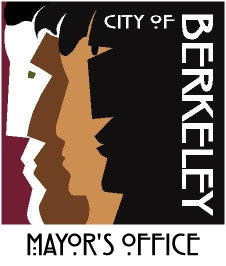Berkeley Passes Nation's Most Expansive Fair Work Week Ordinance
BERKELEY PASSES NATION’S MOST EXPANSIVE FAIR WORK WEEK ORDINANCE
New law would require advance notification of employee schedules, predictability pay for last minute changes, and offers of additional hours before hiring new employees
Tuesday, November 22, 2022
BERKELEY, CA - Building upon its history of strong labor standards, the Berkeley City Council voted unanimously to approve the Fair Work Week Ordinance, the most progressive workforce scheduling ordinance in the country.
“Berkeley is leveling the playing field for low-wage employees and the working class,” said Berkeley Mayor Jesse Arreguin. “Predictability around scheduling and adequate notice is essential for our working families.”
The Ordinance, which goes into effect in January 2023, requires businesses with 50 or more employees to do the following:
Employees must be provided 14 days’ notice of their work schedules.
Employees now have the right to decline hours when given less than 14 days notice.
Employees shall have the right to request flexible and predictable schedules to
accommodate childcare, education, second jobs, etc.
Employees have the right to decline any shift that occurs less than 11 hours after the end of their previous shift (known as a “clopening” shift). iIf they accept such a shift, they must be compensated at 1 ½ times their regular rate of pay.
Employers will provide Predictability Pay for schedule changes, specifically:
1 hour when the schedule is involuntarily changed between 1 - 14 days before the shift.
A maximum of four hours when it is involuntarily changed within 24 hours of a shift.
Before hiring new employees, employers must offer additional hours to existing
part-time employees for any new hours available.
Similar ordinances have already been proposed and/or approved in a variety of cities, including Chicago, Philadelphia, Seattle, and more locally, San Jose, San Francisco and Emeryville. The proposal received a large coalition of support, including labor and union groups, the Alameda County Democratic Central Committee, and the Sierra Club.
Berkeley has been at the forefront of labor rights and has passed a number of laws in recent years. In 2016, Berkeley became one of the first jurisdictions in the country to establish a $15 minimum wage, which went into effect in October 2018, with increases tied to the Consumer Price Index. The current minimum wage, set in July 2022 and updated annually, stands at $16.99. 2016’s minimum wage ordinance also applied strong sick leave standards which require one hour of paid sick leave for every thirty hours worked.
In 2017, the City Council passed the Family Friendly and Environment Friendly Workplace Ordinance, which provides employees the right for a flexible or predictable work schedule. In 2019, the City partnered with Project Equity to expand worker cooperatives by working with business owners planning on retirement to create an employee ownership succession. In 2022, the City Council voted to develop the HARD HATS Ordinance, to be voted on in 2023, which would require apprenticeship programs and healthcare coverage for all developments of at least 50,000 square feet in Berkeley.
Berkeley’s businesses have been roaring back since the pandemic, with a labor force of nearly 60,000 people. In 2021, Berkeley’s unemployment rate dropped to around pre-pandemic levels, at 3.6%. The biggest gains in employment were in businesses most impacted by the pandemic and tend to be low wage jobs, such as in the entertainment, hospitality, and restaurant industries.
